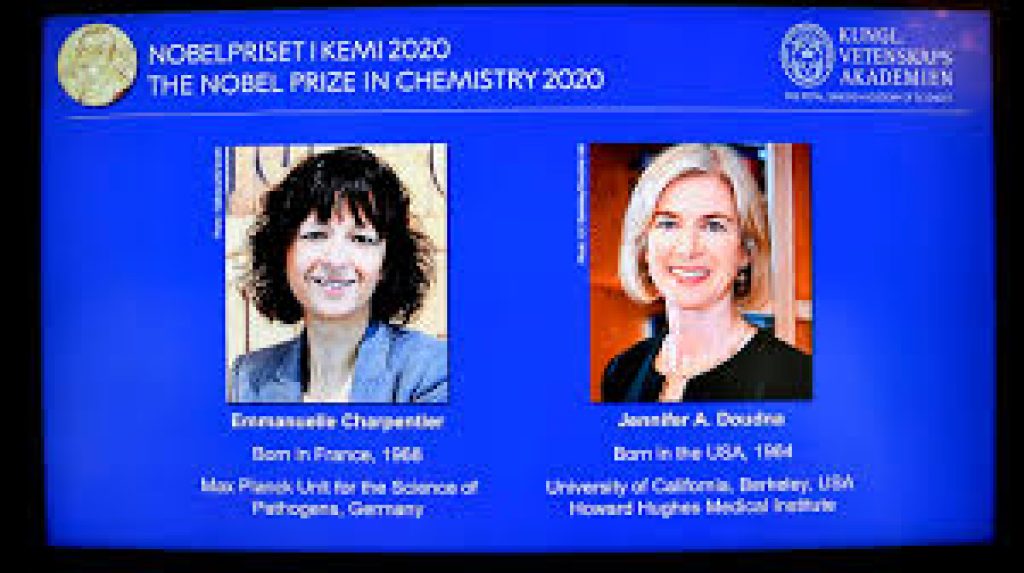U.S.-French duo won Nobel Chemistry Prize for gene editing tool

Emmanuelle Charpentier of France and Jennifer Doudna of the U.S. on October 7 won the Nobel Chemistry Prize for the gene-editing technique known as the CRISPR-Cas9 DNA snipping “scissors”, the first time a Nobel science prize has gone to a women-only team.
Daily Current Affairs Quiz 2020
Key-Points
Charpentier, 51, and Ms. Doudna, 56, are just the sixth and seventh women to receive the Nobel Prize in Chemistry.
Using the tool, “researchers can change the DNA of animals, plants and microorganisms with extremely high precision”.
The CRISPR-Cas9 tool has already contributed to significant gains in crop resilience, altering their genetic code to better withstand drought and pests.
The technology has also led to innovative cancer treatments, and many experts hope it could one day make inherited diseases curable through gene manipulation.
CRISPR’s relative simplicity and widespread applicability has, however, triggered the imaginations of rogue practitioners. In 2018 in China, scientist He Jiankui caused an international scandal when he used CRISPR to create what he called the first gene-edited humans.